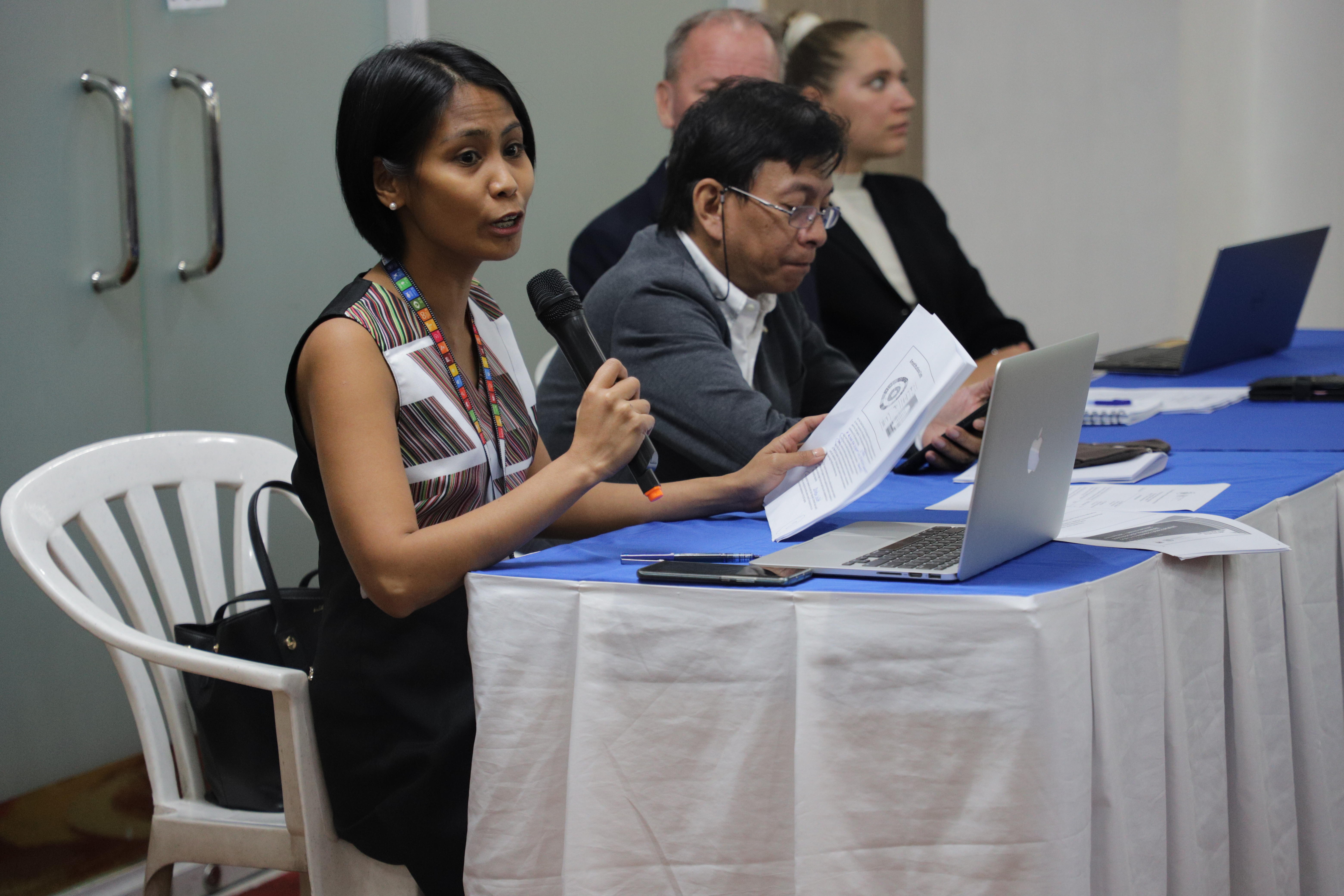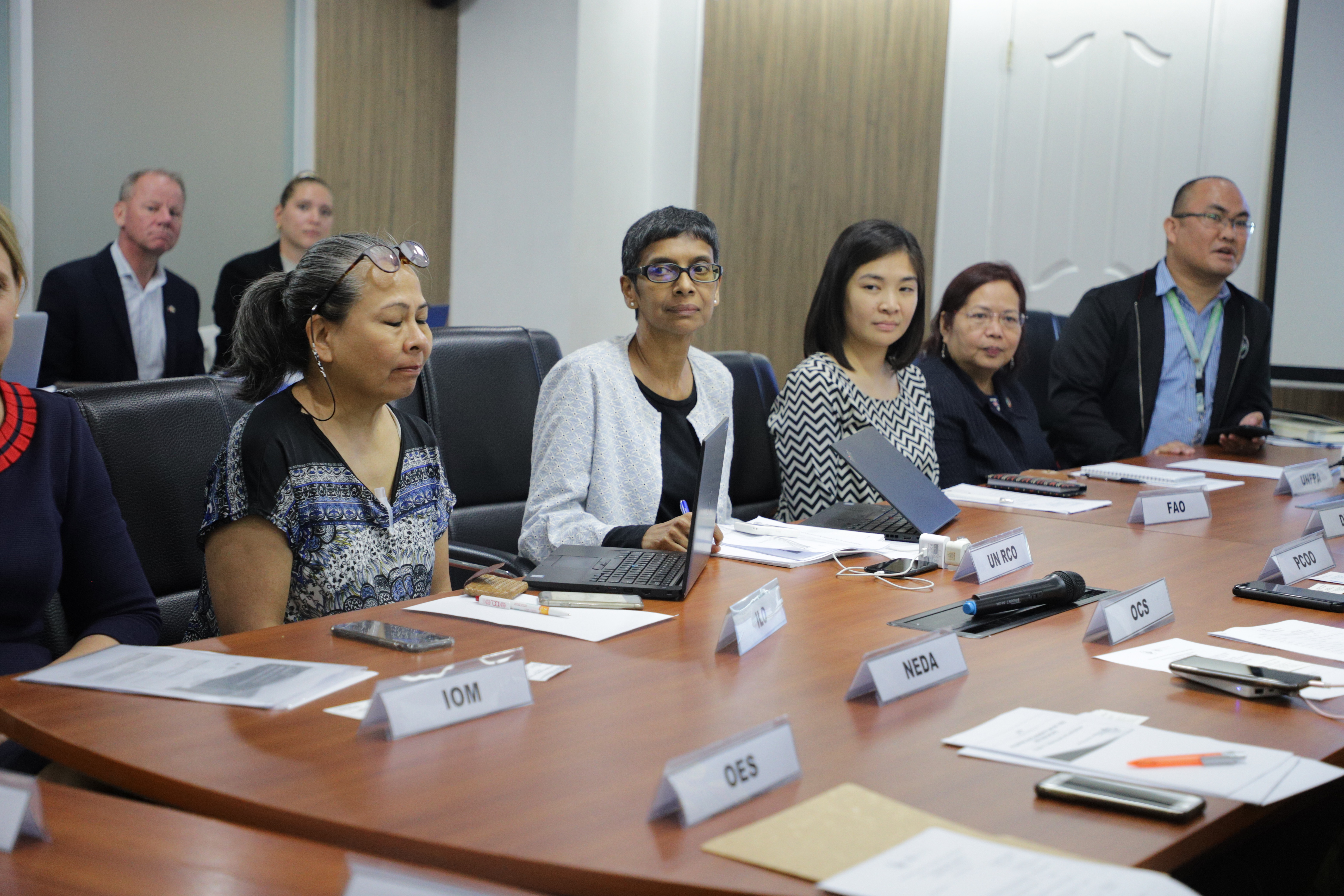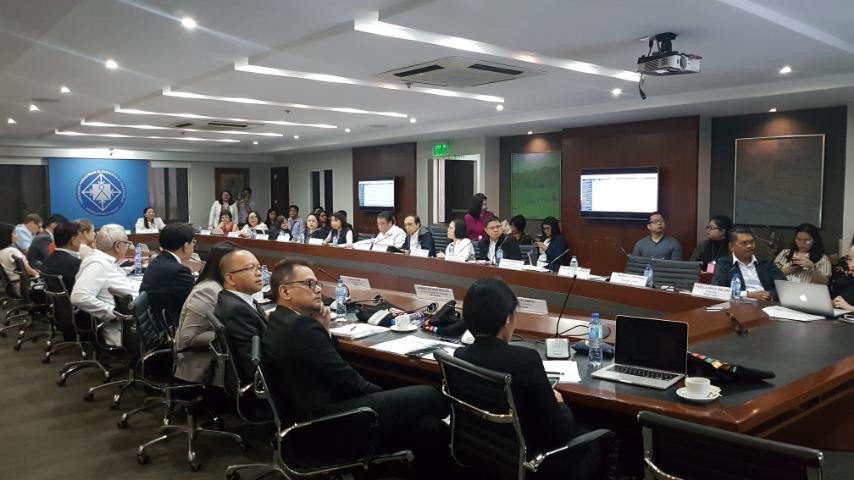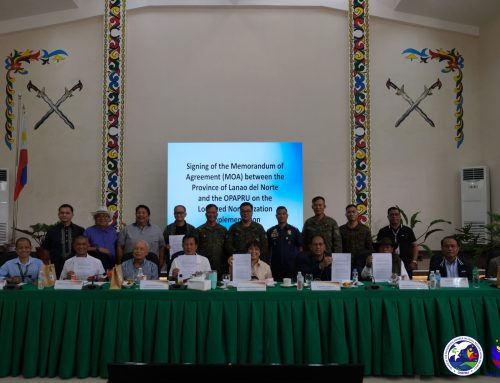PASIG CITY (March 6, 2020) — The Government of the Philippines through the National Economic and Development Authority (NEDA) and United Nations (UN) member-agencies convened for the first National Steering Committee (NSC) meeting of the PH-UN Partnership Framework for Sustainable Development (PFSD).
Representatives from the NEDA and UN bodies discussed ways on how to accelerate the implementation of the PFSD, the strategic framework which defines the specific thrusts and priorities of the UN system in the Philippines.
In his remarks during the gathering, Deputy Presidential Peace Adviser for Operations Undersecretary Isidro L. Purisima called for greater synergy between stakeholders in order to best address peace and development concerns affecting the country.
“I hope that we will be able to identify the gaps on what the government can deliver, and hopefully, our partners from UN can help fill in some of these gaps,” Purisima said.
“So, when we look at the bigger picture, we will see that we are able to provide interventions that have very positive impacts for the people and communities that we serve,” he added.
For his part, United Nations Development Programme (UNDP) Resident Representative Titon Mitra reaffirmed the UN’s continued support to the government’s peace and development agenda.
“In terms of the system, we’re behind with what the government wants to do in terms of the peace process,” Mitra said, as he discussed the challenges being confronted by the agency in its program implementation.

Revised peace and dev’t targets
The PFSD’s Peace Pillar, which is currently being aligned with the Philippine Development Plan (PDP) 2017-2022, particularly to the chapter “Attaining Just and Lasting Peace,” reflects the UN’s revised proposed outcomes.
The pillar’s new outcome statement now aims for “national and local institutions strengthened to address key conflict drivers through enhanced capacities for conflict-sensitive, gender-responsive, youth-friendly and peace-promoting governance for just and lasting peace in conflict-affected areas in Mindanao.”
The intermediate outcomes of the Peace Pillar were likewise enhanced, which called on the government, civil society, and the general public to continue building on the gains of their peacebuilding and development initiatives.
Likewise, the proposed outcomes stated that communities in conflict-affected and conflict-vulnerable areas should have “strengthened risk-informed, human rights-based, gender-responsive, youth-friendly, culture-sensitive and conflict-sensitive mechanisms to address peace and conflict issues and concerns.”
“Based on the pillar discussions we’ve had, the Peace Pillar Results Framework will be further enhanced in view of sharpening results and indicators based on significant developments in the country’s peace and security context,” OPAPP Acting Assistant Secretary for Peace Policy and Planning Pamela Ann Padilla-Salvan said.
Meanwhile, Purisima underscored the importance of an effective monitoring mechanism for all the programs and projects to be implemented under the PFSD’s Peace Pillar.
“It is very important to integrate all our projects in collaboration with different agencies, which is why a strong mechanism for monitoring is essential,” he said.
The NCS meeting was attended by representatives from the departments of Foreign Affairs, Budget and Management, Finance, Environment, and Natural Resources, OPAPP and UN agencies which included the UNDP, International Labour Organization, International Organization for Migration, and Food and Agriculture Organization.
Partners for peace
The Government of the Philippines, as represented by the NEDA secretary, and the United Nations, as represented by the UN resident coordinator, signed off on the PFSD on November 21, 2018.
In January 2019, OPAPP Secretary Carlito G. Galvez, Jr. signed the Declaration of Commitment to formally express OPAPP’s support to the PFSD.
OPAPP is the GPH co-convener, while the UNDP is the UN Country Team co-convener of the Peace Pillar’s Joint Results Group (JRG).
The JRG is the mechanism established by the government and UN agencies to carry out joint planning, programming and implementation of the PFSD’s strategic development goals and outcomes.
The JRG held its second meeting on March 3 in preparation for the first NSC meeting. It was attended by representatives from NEDA, OPAPP, Department of Interior and Local Government, Presidential Communications and Operations Office, Office of the Executive Secretary, Office of the Cabinet Secretary, and National Security Council and UN agencies such as the UNDP, UN Resident Coordinator Office, IOM and FAO. ###













